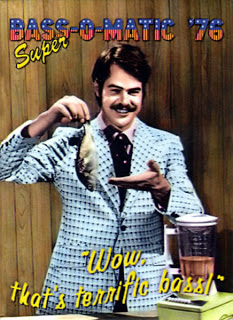Consider the following post a public educational service. 😉
Here are the most irritating, dubious, widespread, just – plain – wrong narratives about copywriting and copywriters that I have encountered.
By “narrative” I mean – a story or an explanation that has leaked into the public consciousness which “everyone” assumes is correct. The kind of story that is prepended with a qualifier like “they say that.”

“Let’s do some Jager Bombs and then whip up that white paper.”
1. You’re Arrogant and You Expect Big Bucks for Trivial Effort.
Arrogant, unfaithful to their spouses, drink like fish, chain smokers… copywriters probably have thick tar instead of blood in their veins.
No wonder nobody wants to take my calls when I tell them I’m a copywriter!
Mad Men alone has probably done the most harm to the public conception of copywriting and marketing activities in general since P.T. Barnum separated the last fool from his money.
“Real” (not TV) Copywriting
Copywriters get paid to produce writing that represents a product or a cause. Most of us (copywriters) work on projects that have many details and complexity… such as the writing (the copy) for an entire web site, or a pamphlet for a product, or a case study or white paper for a technology vendor, or some other promotional items.
Copy doesn’t happen over drinks, or when we’re showering, or in our sleep. We meet or conference with our client… maybe a few times. We produce multiple drafts. And we submit a proposed piece to our client for approval. We may revise according to the client’s wishes and needs. Somewhere along the way, if we did our job well, we get paid for our efforts.
We (generally) don’t get anointed with riches for coming up with one line such as “it’s toasted.” The vast majority of copywriters are hard working men and women who don’t pour themselves a single malt scotch at 8:30 in the morning just to fire up the creative juices.

What every kitchen needs. BUY! BUY! BUY!
2. Good Copywriting is a Magical Incantation. It Will Always Sell a Product. Always. Always. Always.
The narrative goes like this: a genius copywriter crafts an offer for Amish heaters or male enhancement pills or a new pet rock type fad, and earns millions from a few magazine ads and TV offers. And that’s copywriting, always, forever, and there is no other kind of copywriting, period.
This reputation probably springs from the image that direct response marketing has developed over the years.
This key misconception is founded on two very dumb and wrongheaded assumptions about marketing:
- Only anointed wizards can write effective copy. (such as the vaunted direct response copywriters.) Everyone else is a wanna be schmuck who will invariably fail.
- One single marketing effort using copy written by such a genius will drive every bit of business you need. A “silver bullet” such as one successful direct response mail piece or “squeeze page” will propel a business to the next level. (Some small business owners who hate planning a cohesive strategy or spending much money just love to think this.)
The truth is: direct response marketing writing is a very small niche of copywriting. Most products actually aren’t sold instantly via a web site or phone-in offer. And truth be told, business owners who look for silver bullets tend to be a bit delusional.
So much depends on the product being sold. And the offer. And the value that the product has to its target audience. And a whole bunch of other things that space doesn’t permit to be listed here.
…As well as the presentation of the copywriting. I have witnessed absolutely mangled presentation of what was high quality copy, with poorly laid out web sites that have badly selected typefaces and boring or poorly chosen screen layouts. The lack of a budget or plan for promoting new copy essentially wasted the work that the clients paid for.
What I’m about to say is revolutionary, coming from a copywriter:
Copywriting is Just One Aspect of a Marketing Plan
Message is “everything.” It’s critically important to have great copy.
But other things are just as important to ensure the success of a vendor’s marketing effort:
- Layout and presentation– the appearance and design of the web site, or the brochure, or the advertising piece.
- The product itself
- The value of the offer
- The vendor’s reputation
- Graphics and images
- The vendor’s logo
- The entire premise of the product, including its value proposition.
- AND the business’s long term marketing practices.
As a copywriter, I can only work with whatever the client has set forth. And my best effort can’t overcome questionable value, poor presentation, or a lousy marketing strategy.
3. Mr. Copywriter, if you were any good you’d develop copy for royalties only. You must suck since you don’t offer this.
A colleague (an academic person) gave me the following advice a while back, and he was quite serious:
Find a business owner who is willing to let you write their copy for free, in exchange for demonstrating that it can positively affect sales. If you DON’T believe you can make this happen, then you don’t truly believe in your own product. If you DO believe you can make it happen, then do it for someone for free.
(With friends like that…!)
The reason I called out this point is because the “challenge” is couched as an insult – he didn’t believe anyone should pay me up front. I don’t believe I can create a good outcome in this situation. But it’s common sense, not lack of belief in my product.
Skin In the Game
First of all, as I stated in point #2 above, the copywriter simply doesn’t have the power to rake in new business on his own on the power of words alone. Many other elements must be in place first.
Secondly, if you won’t pay anything up front to promote your business, then you don’t believe in your business. And neither should anyone else. Only amateurs seriously pursue “spec” (speculative) work arrangements at the client and the provider ends. Without skin in the game, the client is just playing around.
New copy is probably a smaller expense than web site design, printing and postage, and other publicity efforts. If an owner cannot afford $500 (for example) for new web site copy, he surely can’t afford $2000 and up for a new web site design.
An effort to produce a “spec” product will most likely be completely wasted.
If the business person can afford that $2000+ web site design, they surely don’t want to risk their investment on “free” copy.
It’s a stupid challenge.
Conclusion
If you’ve ever bought anything because an ad or an article told you that it was a good idea to do so, then congratulations – you’ve been seduced by the wiles of copywriting.
Just the mention of copywriting pushes some people’s buttons, however. Many in the business community project their own irritations, self-doubts, and/or skepticism onto the practitioners of this hybrid craft and art form.
Be skeptical, test claims, and don’t put anyone on a pedestal.
